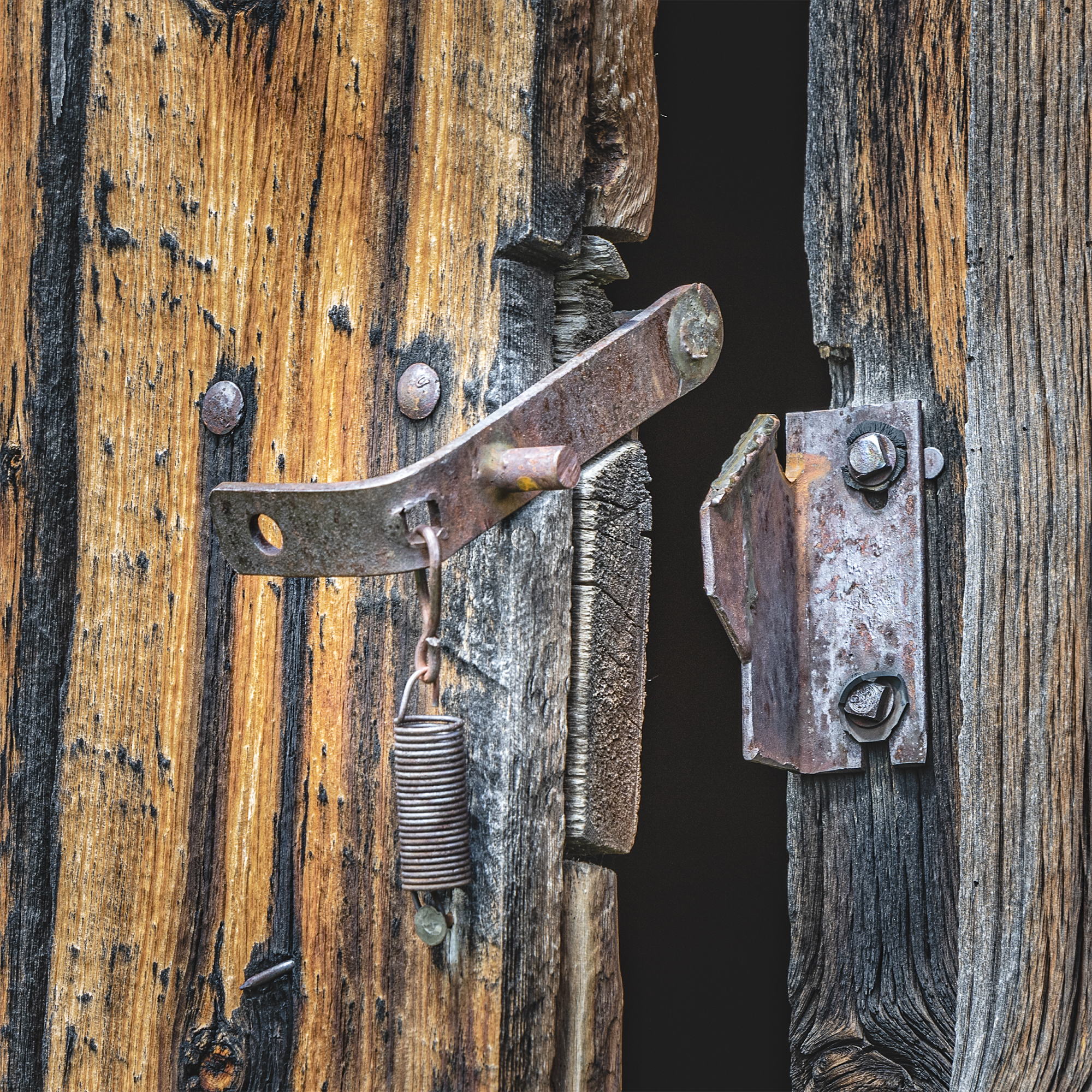The barn was on the property when he purchased the place, its age uncertain. The skin was ponderosa pine, and given that many ponderosas in northern Colorado could be 200 years old when cut and milled, the total age of the barn might have been in centuries. It was a two-horse structure, with stables and corrals and feed and tack rooms, lantern-lit in their early days, all covered by a tin roof. A mid-septuagenarian, he was increasingly drawn to old things because they revived memories of his past and there were parallels in their accommodation of time. The barn was no exception; it had endured and been scarred by extremes of high country weather, and past owners had deployed numerous patches and repairs. Yet there was a beauty in the rustic, home-made parts and gnarled wood with its curving and cracked grain, stains, and knots and knot holes, both patched and unpatched. In color and composition it all added up to the slow acquisition of character as well as a metaphor for his own aging processes. He and the barn were fellow time travelers, and he visited often. The barn was a living thing in a sense, aging with the elements, and offering insights to those willing to be close and quiet.
The barn, a colorful structure of unknown age
Warts and Scars
A repaired hinge
Home-forged latch, rusted but still functional
The Overseer
Patched knothole
Weather-worn door latch
Tack room lighting







